Deploy Golang on Azure Cobalt 100 on Arm
Introduction
Overview
Create an Azure Cobalt 100 Arm64 virtual machine for Golang deployment
Install and configure Golang on Azure Cobalt 100 Arm64
Perform Golang baseline testing and web server deployment on Azure Cobalt 100
Run performance tests using go test -bench
Next Steps
Deploy Golang on Azure Cobalt 100 on Arm
Prerequisites and setup
There are several common ways to create an Arm-based Cobalt 100 virtual machine, and you can choose the method that best fits your workflow or requirements:
- The Azure Portal
- The Azure CLI
- An infrastructure as code (IaC) tool
In this section, you will launch the Azure Portal to create a virtual machine with the Arm-based Azure Cobalt 100 processor.
This Learning Path focuses on general-purpose virtual machines in the Dpsv6 series. For more information, see the Microsoft Azure guide for the Dpsv6 size series .
While the steps to create this instance are included here for convenience, you can also refer to the Deploy a Cobalt 100 virtual machine on Azure Learning Path .
Create an Arm-based Azure virtual machine
Creating a virtual machine on Azure Cobalt 100 follows the standard Azure VM flow, which typically involves specifying basic settings, selecting an operating system image, configuring authentication, and setting up networking and security options.
For more information, see the Azure VM creation documentation .
To create a VM using the Azure Portal, follow these steps:
In the Azure portal, go to Virtual machines.
Select Create, then choose Virtual machine from the drop-down.
On the Basics tab, enter Virtual machine name and Region.
Under Image, choose your OS (for example, Ubuntu Pro 24.04 LTS) and set Architecture to Arm64.
In Size, select See all sizes, choose the Dpsv6 series, then select D4ps_v6.
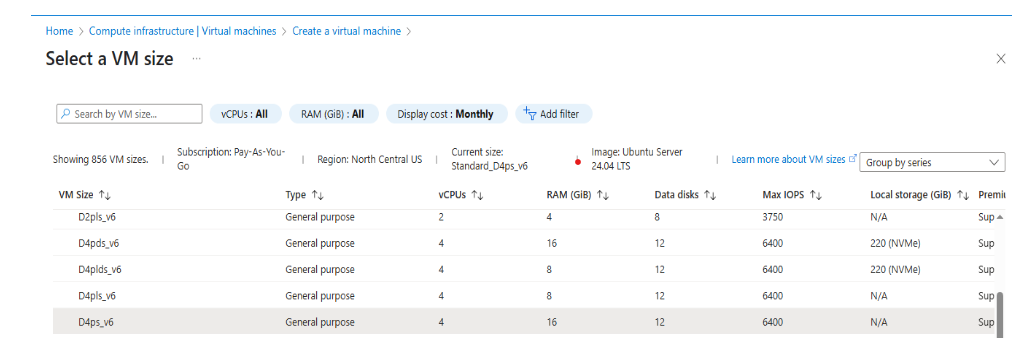 Select the Dpsv6 series and D4ps_v6
Select the Dpsv6 series and D4ps_v6
Under Authentication type, choose SSH public key. Azure can generate a key pair and store it for future use. For SSH key type, ED25519 is recommended (RSA is also supported).
Enter the Administrator username.
If generating a new key, select Generate new key pair, choose ED25519 (or RSA), and provide a Key pair name.
In Inbound port rules, select HTTP (80) and SSH (22).
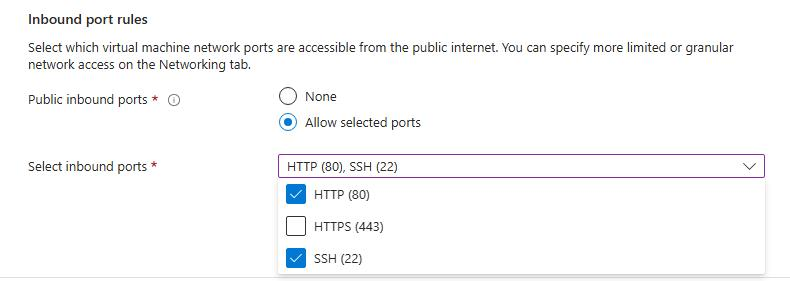 Allow inbound port rules
Allow inbound port rules
- Select Review + create and review your configuration. It should look similar to:
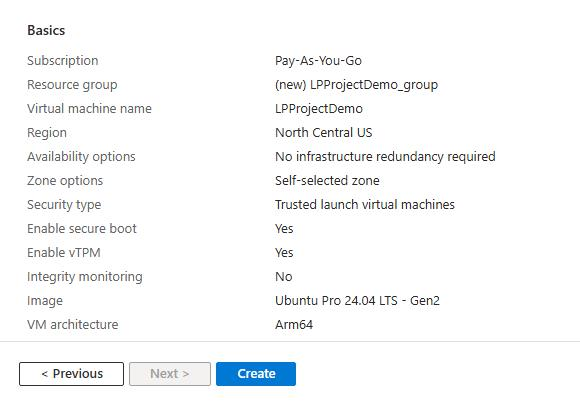 Review and create an Arm64 VM on Cobalt 100
Review and create an Arm64 VM on Cobalt 100
When you’re ready, select Create, then Download private key and create resources.
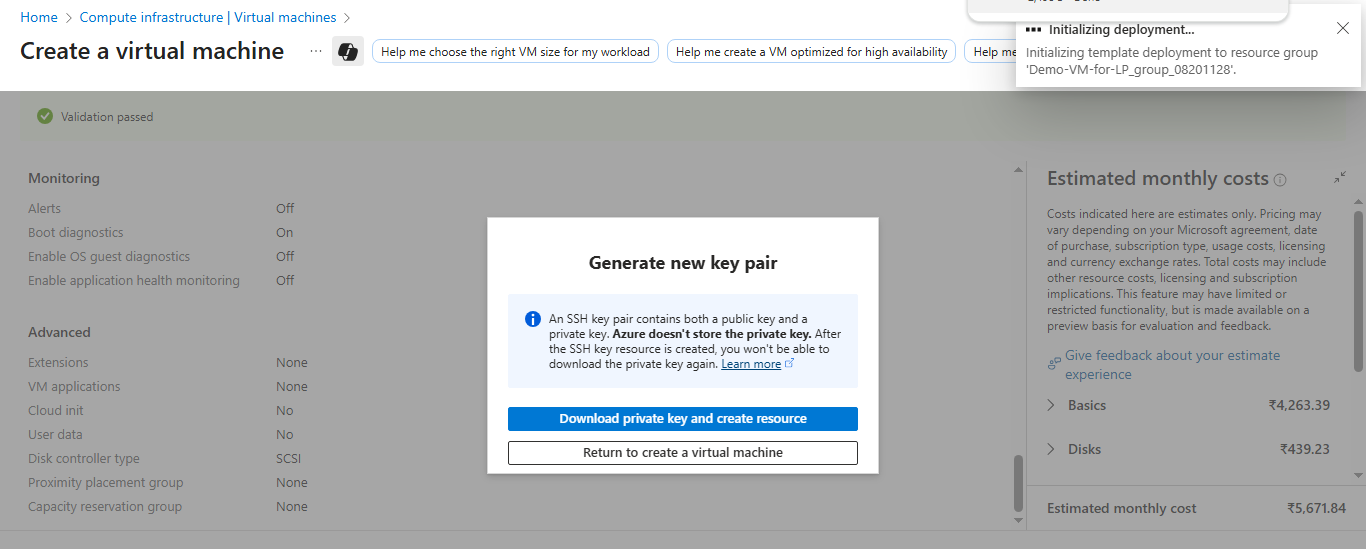 Download private key and create resources
Download private key and create resources
Your virtual machine should be ready and running within no time. You can SSH into the virtual machine using the private key, along with the Public IP details.
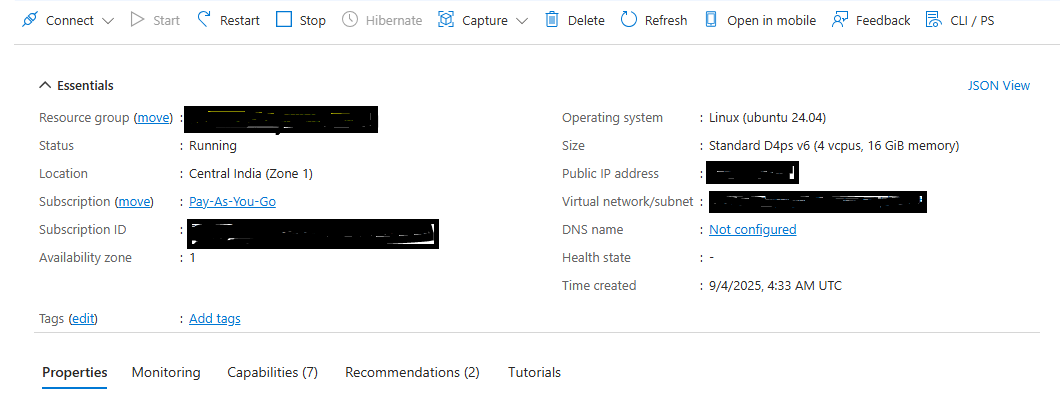 VM deployment confirmation in the Azure portal
VM deployment confirmation in the Azure portal
To learn more about Arm-based virtual machines on Azure, see the section Getting Started with Microsoft Azure within the Learning Path Get started with Arm-based cloud instances .